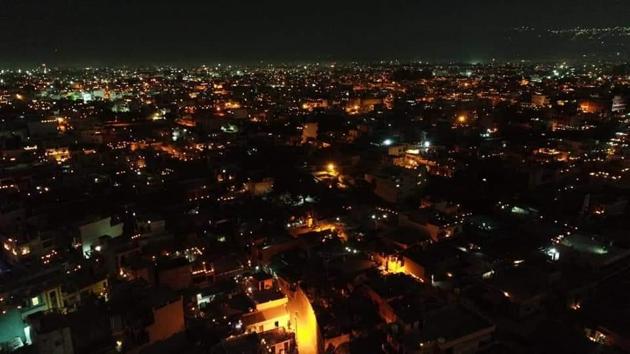Govt rolls out ‘grid balancing’ plan for PM Modi’s 9 pm lights-off event
The ministry said apprehensions that switching off the lights could cause instability in the grid and fluctuation in voltage was misplaced.
The union ministry of power on Saturday clarified Prime Minister Narendra Modi’s call for switching off lights on Sunday would not cause instability to the power grid amid concerns over a possible ‘grid-collapse’ raised by the opposition.

“Some apprehensions have been expressed that this may cause instability in the grid and fluctuation in voltage which may harm the electrical appliances. These apprehensions are misplaced. The Indian electricity grid is robust and stable and adequate arrangements and protocols are in place to handle the variation in demand,” the power ministry said.
“The appeal of the Hon Prime Minister is to simply switch off the lights in their homes from 9 pm to 9.09 pm on the 5th of April. There is no call to switch off either streetlights or appliances like Computers, TVs, Fans, Refrigerators and ACs in the homes. Only lights should be switched off,” it added.
Concerns have been raised on the health of the power grid with a dip of 30% in demand for power due to the absence of commercial activity in the wake of the lockdown, a sudden change in grid frequency could lead to a potential power blackout. According to power ministry data available for April 2, peak demand stood at 125.8 GW which is 25% lower than 168.3 GW for the same day last year.
“As somebody who has been associated with the power sector for almost three decades including as minister, the call to go dark for 9 min at 9 pm on the 5th can have deep impact on the grid and its stability. I sincerely hope this is being properly managed,” Jairam Ramesh, senior Congress leader tweeted.
Congress party general secretary Priyanka Gandhi also raised concerns over the safety of workers at power grid. “While the country is expressing solidarity in the war against Corona, it is expected that the power grids and engineers’ concerns are also being taken care of by the central government. So that there is no obstruction in the power supply during the crisis and in times of need,” she said.
Following Prime Minister Narendra Modi’s call to switch off lights, on April 5, at 9 pm, for nine minutes, the Union power ministry, on Friday, held a high-level review meeting to assess the impact of power fluctuation on the grid. The meeting was chaired by Union power minister RK Singh and senior officials from Power Grid Corporation of India Limited (PGCIL) and grid operator POSOCO National Load Despatch Centre, Hindustan Times had reported on Friday.
An advisory has been issued to all states by the centre to assure that adequate arrangements have been made to meet the variation in demand.
“The national load dispatch centre has worked out the procedures for grid balancing during the period which they will be communicating to the regional and state load dispatch centre’s separately,” the letter written by the power ministry said.
Load dispatchers in states like Uttar Pradesh have already issued letters to the state power operators warning of sharp load reduction of approximately 3 GW, advising load shedding in a staggered manner for an hour during the event. “To avoid sharp crashing of load, load shedding in staggered manner may be done starting from approximately 8 pm to 9 pm” the letter written by UP state load dispatcher director said.
State power minister for MaharashtraNitin Raut has also warned of a power grid failure and asked all regions to take extra precautions to ensure no blackout occurs.
Acording to POSOCO total domestic lighting load reduction on an all India level has been pegged at 12-13 GW. In a detailed advisory on Saturday, a copy of which has been reviewed by Hindustan Times said, “nlike normal operation, this reduction in load of the order of 12-13 GW would happen in 2-4 minutes and recover nine minutes later within 2-4 minutes. This sharp reduction in load and recovery, which is unprecedented, will need to be handled through hydro and gas resources.
Experts too have said load dispatchers would have to rely on hydro and gas power plants to curtail risk.
“I am not aware of any event before leading to such a sharp fluctuation before. It will need careful management and pre-planning. They will have to judicially use hydro and gas power plants to come back and curtail risk,” said Vinay Rustagi, managing director at renewable energy consultancy Bridge to India Energy Private Limited.
During the evening peak hours (from 6 PM to 10PM) hydro generation will be reduced and conserved for providing flexibility during the event at 9 PM, POSCO has said. During this time directions have been issued for thermal and gas generation to be scheduled in a manner so as to manage the peak.






